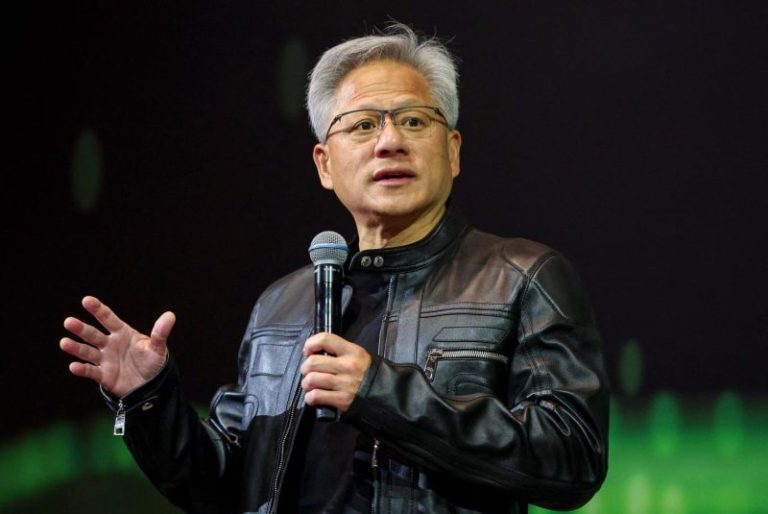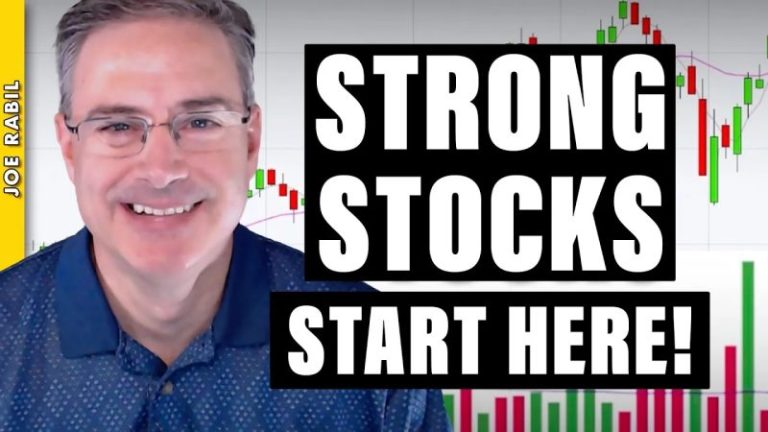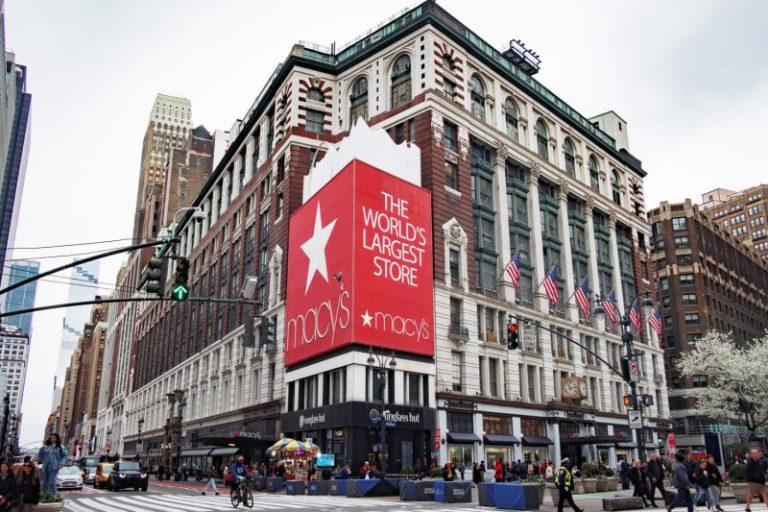Coelacanth Energy Inc. (TSXV: CEI) (‘Coelacanth’ or the ‘Company’) is pleased to announce its financial and operating results for the three months ended March 30, 2025. All dollar figures are Canadian dollars unless otherwise noted.
| FINANCIAL RESULTS |
|
Three Months Ended |
|
| |
|
March 31 |
|
| ($000s, except per share amounts) |
|
2025 |
|
|
2024 |
|
|
% Change |
|
| |
|
|
|
|
|
|
|
|
|
| Oil and natural gas sales |
|
2,666 |
|
|
3,666 |
|
|
(27 |
) |
| |
|
|
|
|
|
|
|
|
|
| Cash flow from operating activities |
|
981 |
|
|
3,256 |
|
|
(70 |
) |
| Per share – basic and diluted (1) |
|
– |
|
|
0.01 |
|
|
(100 |
) |
| |
|
|
|
|
|
|
|
|
|
| Adjusted funds flow (used) (1) |
|
(1,440 |
) |
|
1,078 |
|
|
(234 |
) |
| Per share – basic and diluted |
|
(- |
) |
|
– |
|
|
(- |
) |
| |
|
|
|
|
|
|
|
|
|
| Net loss |
|
(3,617 |
) |
|
(1,201 |
) |
|
201 |
|
| Per share – basic and diluted |
|
(0.01 |
) |
|
(- |
) |
|
100 |
|
| |
|
|
|
|
|
|
|
|
|
| Capital expenditures (1) |
|
25,701 |
|
|
1,263 |
|
|
1,935 |
|
| |
|
|
|
|
|
|
|
|
|
| Adjusted working capital (deficiency) (1) |
|
(25,710 |
) |
|
67,139 |
|
|
(138 |
) |
| |
|
|
|
|
|
|
|
|
|
| Common shares outstanding (000s) |
|
|
|
|
|
|
|
|
|
| Weighted average – basic and diluted |
|
531,445 |
|
|
529,196 |
|
|
– |
|
| |
|
|
|
|
|
|
|
|
|
| End of period – basic |
|
532,202 |
|
|
529,392 |
|
|
1 |
|
| End of period – fully diluted |
|
624,877 |
|
|
618,165 |
|
|
1 |
|
(1) See ‘Non-GAAP and Other Financial Measures’ section.
| |
|
Three Months Ended |
|
| OPERATING RESULTS (1) |
|
March 31 |
|
| |
|
2025 |
|
|
2024 |
|
|
% Change |
|
| |
|
|
|
|
|
|
|
|
|
| Daily production (2) |
|
|
|
|
|
|
|
|
|
| Oil and condensate (bbls/d) |
|
184 |
|
|
300 |
|
|
(39 |
) |
| Other NGLs (bbls/d) |
|
25 |
|
|
37 |
|
|
(32 |
) |
| Oil and NGLs (bbls/d) |
|
209 |
|
|
337 |
|
|
(38 |
) |
| Natural gas (mcf/d) |
|
3,311 |
|
|
3,934 |
|
|
(16 |
) |
| Oil equivalent (boe/d) |
|
761 |
|
|
993 |
|
|
(23 |
) |
| |
|
|
|
|
|
|
|
|
|
| Oil and natural gas sales |
|
|
|
|
|
|
|
|
|
| Oil and condensate ($/bbl) |
|
90.21 |
|
|
85.30 |
|
|
6 |
|
| Other NGLs ($/bbl) |
|
38.01 |
|
|
34.79 |
|
|
9 |
|
| Oil and NGLs ($/bbl) |
|
84.03 |
|
|
79.82 |
|
|
5 |
|
| Natural gas ($/mcf) |
|
3.65 |
|
|
3.40 |
|
|
7 |
|
| Oil equivalent ($/boe) |
|
38.94 |
|
|
40.57 |
|
|
(4 |
) |
| |
|
|
|
|
|
|
|
|
|
| Royalties |
|
|
|
|
|
|
|
|
|
| Oil and NGLs ($/bbl) |
|
15.95 |
|
|
20.77 |
|
|
(23 |
) |
| Natural gas ($/mcf) |
|
0.64 |
|
|
0.51 |
|
|
25 |
|
| Oil equivalent ($/boe) |
|
7.18 |
|
|
9.08 |
|
|
(21 |
) |
| |
|
|
|
|
|
|
|
|
|
| Operating expenses |
|
|
|
|
|
|
|
|
|
| Oil and NGLs ($/bbl) |
|
10.63 |
|
|
9.89 |
|
|
7 |
|
| Natural gas ($/mcf) |
|
1.77 |
|
|
1.65 |
|
|
7 |
|
| Oil equivalent ($/boe) |
|
10.63 |
|
|
9.89 |
|
|
7 |
|
| |
|
|
|
|
|
|
|
|
|
| Net transportation expenses (3) |
|
|
|
|
|
|
|
|
|
| Oil and NGLs ($/bbl) |
|
2.27 |
|
|
2.45 |
|
|
(7 |
) |
| Natural gas ($/mcf) |
|
0.78 |
|
|
0.68 |
|
|
15 |
|
| Oil equivalent ($/boe) |
|
4.00 |
|
|
3.54 |
|
|
13 |
|
| |
|
|
|
|
|
|
|
|
|
| Operating netback (3) |
|
|
|
|
|
|
|
|
|
| Oil and NGLs ($/bbl) |
|
55.18 |
|
|
46.71 |
|
|
18 |
|
| Natural gas ($/mcf) |
|
0.46 |
|
|
0.56 |
|
|
(18 |
) |
| Oil equivalent ($/boe) |
|
17.13 |
|
|
18.06 |
|
|
(5 |
) |
| |
|
|
|
|
|
|
|
|
|
| Depletion and depreciation ($/boe) |
|
(14.30 |
) |
|
(14.42 |
) |
|
(1 |
) |
| General and administrative expenses ($/boe) |
|
(21.76 |
) |
|
(13.86 |
) |
|
57 |
|
| Share based compensation ($/boe) |
|
(18.46 |
) |
|
(10.11 |
) |
|
83 |
|
| Finance expense ($/boe) |
|
(12.86 |
) |
|
(1.06 |
) |
|
1,113 |
|
| Finance income ($/boe) |
|
1.46 |
|
|
10.60 |
|
|
(86 |
) |
| Unutilized transportation ($/boe) |
|
(4.05 |
) |
|
(2.49 |
) |
|
63 |
|
| Net loss ($/boe) |
|
(52.84 |
) |
|
(13.28 |
) |
|
298 |
|
(1) See ‘Oil and Gas Terms’ section.
(2) See ‘Product Types’ section.
(3) See ‘Non-GAAP and Other Financial Measures’ section.
Selected financial and operational information outlined in this news release should be read in conjunction with Coelacanth’s unaudited condensed interim financial statements and related Management’s Discussion and Analysis (‘MD&A’) for the three months ended March 31, 2025, which are available for review under the Company’s profile on SEDAR+ at www.sedarplus.ca.
OPERATIONS UPDATE
Coelacanth has reached a major milestone in its development with the completion of the Two Rivers East facility (the ‘Facility’). The Facility was completed on budget and has moved to the testing and start-up phase. The capacity of the Facility is currently 8,000 boe/d but will be expanded in Q4 2025 to 16,000 boe/d with added compression. We expect production to start flowing imminently from the 5-19 pad and ramp up through the summer. As previously released, the 5-19 pad has 9 wells that tested over 11,000 boe/d (1) that will be brought on systematically to approach the phase I capacity of the plant prior to further drilling.
Over the next few years, Coelacanth will continue with its business plan that incorporates:
- Systematically developing the resource using pad development and horizontal multi-frac technology to increase production and maximize cash flow and investment returns.
- Delineating the lands with vertical and horizontal wells to help in quantifying and understanding the commerciality of its large Montney resource base that includes up to four Montney benches over its 150 contiguous sections of land.
- Developing and licensing a flexible infrastructure plan that will allow for the resource to be scaled to a much larger production base.
Coelacanth has licensed additional locations on the 5-19 pad, is in the process of licensing additional development pads, delineation locations and additional infrastructure to grow beyond current plant capacity. While commodity prices and available capital will dictate the pace of execution of the business plan, we are very pleased with the results to date and look forward to reporting on new developments as they arise.
(1) See ‘Test Results and Initial Production Rates’ section for more details.
OIL AND GAS TERMS
The Company uses the following frequently recurring oil and gas industry terms in the news release:
Liquids
| Bbls |
Barrels |
| Bbls/d |
Barrels per day |
| NGLs |
Natural gas liquids (includes condensate, pentane, butane, propane, and ethane) |
| Condensate |
Pentane and heavier hydrocarbons |
Natural Gas
| Mcf |
Thousands of cubic feet |
| Mcf/d |
Thousands of cubic feet per day |
| MMcf/d |
Millions of cubic feet per day |
| MMbtu |
Million of British thermal units |
| MMbtu/d |
Million of British thermal units per day |
Oil Equivalent
| Boe |
Barrels of oil equivalent |
| Boe/d |
Barrels of oil equivalent per day |
Disclosure provided herein in respect of a boe may be misleading, particularly if used in isolation. A boe conversion rate of six thousand cubic feet of natural gas to one barrel of oil equivalent has been used for the calculation of boe amounts in the news release. This boe conversion rate is based on an energy equivalency conversion method primarily applicable at the burner tip and does not represent a value equivalency at the wellhead.
NON-GAAP AND OTHER FINANCIAL MEASURES
This news release refers to certain measures that are not determined in accordance with IFRS (or ‘GAAP’). These non-GAAP and other financial measures do not have any standardized meaning prescribed under IFRS and therefore may not be comparable to similar measures presented by other entities. The non-GAAP and other financial measures should not be considered alternatives to, or more meaningful than, financial measures that are determined in accordance with IFRS as indicators of the Company’s performance. Management believes that the presentation of these non-GAAP and other financial measures provides useful information to shareholders and investors in understanding and evaluating the Company’s ongoing operating performance, and the measures provide increased transparency to better analyze the Company’s performance against prior periods on a comparable basis.
Non-GAAP Financial Measures
Adjusted funds flow (used)
Management uses adjusted funds flow (used) to analyze performance and considers it a key measure as it demonstrates the Company’s ability to generate the cash necessary to fund future capital investments and abandonment obligations and to repay debt, if any. Adjusted funds flow (used) is a non-GAAP financial measure and has been defined by the Company as cash flow from operating activities excluding the change in non-cash working capital related to operating activities, movements in restricted cash deposits and expenditures on decommissioning obligations. Management believes the timing of collection, payment or incurrence of these items involves a high degree of discretion and as such may not be useful for evaluating the Company’s cash flows. Adjusted funds flow (used) is reconciled from cash flow from operating activities as follows:
| |
|
Three Months Ended |
|
| |
|
March 31 |
|
| ($000s) |
|
2025 |
|
|
2024 |
|
|
% Change |
|
| Cash flow from operating activities |
|
981 |
|
|
3,256 |
|
|
(70 |
) |
| Add (deduct): |
|
|
|
|
|
|
|
|
|
| Decommissioning expenditures |
|
139 |
|
|
148 |
|
|
(6 |
) |
| Change in restricted cash deposits |
|
– |
|
|
424 |
|
|
(100 |
) |
| Change in non-cash working capital |
|
(2,560 |
) |
|
(2,750 |
) |
|
(7 |
) |
| Adjusted funds flow (used) (non-GAAP) |
|
(1,440 |
) |
|
1,078 |
|
|
(234 |
) |
Net transportation expenses
Management considers net transportation expenses an important measure as it demonstrates the cost of utilized transportation related to the Company’s production. Net transportation expenses is calculated as transportation expenses less unutilized transportation and is calculated as follows:
| |
|
Three Months Ended |
|
| |
|
March 31 |
|
| ($000s) |
|
2025 |
|
|
2024 |
|
| Transportation expenses |
|
551 |
|
|
545 |
|
| Unutilized transportation |
|
(277 |
) |
|
(225 |
) |
| Net transportation expenses (non-GAAP) |
|
274 |
|
|
320 |
|
Operating netback
Management considers operating netback an important measure as it demonstrates its profitability relative to current commodity prices. Operating netback is calculated as oil and natural gas sales less royalties, operating expenses, and net transportation expenses and is calculated as follows:
| |
|
Three Months Ended |
|
| |
|
March 31 |
|
| ($000s) |
|
2025 |
|
|
2024 |
|
| Oil and natural gas sales |
|
2,666 |
|
|
3,666 |
|
| Royalties |
|
(491 |
) |
|
(821 |
) |
| Operating expenses |
|
(728 |
) |
|
(894 |
) |
| Net transportation expenses |
|
(274 |
) |
|
(320 |
) |
| Operating netback (non-GAAP) |
|
1,173 |
|
|
1,631 |
|
Capital expenditures
Coelacanth utilizes capital expenditures as a measure of capital investment on property, plant, and equipment, exploration and evaluation assets and property acquisitions compared to its annual budgeted capital expenditures. Capital expenditures are calculated as follows:
| |
|
Three Months Ended |
|
| |
|
March 31 |
|
| ($000s) |
|
2025 |
|
|
2024 |
|
| Capital expenditures – property, plant, and equipment |
|
668 |
|
|
393 |
|
| Capital expenditures – exploration and evaluation assets |
|
25,033 |
|
|
870 |
|
| Capital expenditures (non-GAAP) |
|
25,701 |
|
|
1,263 |
|
Capital Management Measures
Adjusted working capital
Management uses adjusted working capital (deficiency) as a measure to assess the Company’s financial position. Adjusted working capital is calculated as current assets and restricted cash deposits less current liabilities, excluding the current portion of decommissioning obligations.
| ($000s) |
March 31,
2025 |
|
December 31, 2024 |
|
| Current assets |
|
3,431 |
|
|
11,579 |
|
| Less: |
|
|
|
|
|
|
| Current liabilities |
|
(36,009 |
) |
|
(37,234 |
) |
| Working capital deficiency |
|
(32,578 |
) |
|
(25,655 |
) |
| Add: |
|
|
|
|
|
|
| Restricted cash deposits |
|
4,900 |
|
|
4,900 |
|
| Current portion of decommissioning obligations |
|
1,968 |
|
|
2,118 |
|
| Adjusted working capital deficiency (Capital management measure) |
|
(25,710 |
) |
|
(18,637 |
) |
Non-GAAP Financial Ratios
Adjusted Funds Flow (Used) per Share
Adjusted funds flow (used) per share is a non-GAAP financial ratio, calculated using adjusted funds flow (used) and the same weighted average basic and diluted shares used in calculating net loss per share.
Net transportation expenses per boe
The Company utilizes net transportation expenses per boe to assess the per unit cost of utilized transportation related to the Company’s production. Net transportation expenses per boe is calculated as net transportation expenses divided by total production for the applicable period.
Operating netback per boe
The Company utilizes operating netback per boe to assess the operating performance of its petroleum and natural gas assets on a per unit of production basis. Operating netback per boe is calculated as operating netback divided by total production for the applicable period.
Supplementary Financial Measures
The supplementary financial measures used in this news release (primarily average sales price per product type and certain per boe and per share figures) are either a per unit disclosure of a corresponding GAAP measure, or a component of a corresponding GAAP measure, presented in the financial statements. Supplementary financial measures that are disclosed on a per unit basis are calculated by dividing the aggregate GAAP measure (or component thereof) by the applicable unit for the period. Supplementary financial measures that are disclosed on a component basis of a corresponding GAAP measure are a granular representation of a financial statement line item and are determined in accordance with GAAP.
PRODUCT TYPES
The Company uses the following references to sales volumes in the news release:
Natural gas refers to shale gas
Oil and condensate refers to condensate and tight oil combined
Other NGLs refers to butane, propane and ethane combined
Oil and NGLs refers to tight oil and NGLs combined
Oil equivalent refers to the total oil equivalent of shale gas, tight oil, and NGLs combined, using the conversion rate of six thousand cubic feet of shale gas to one barrel of oil equivalent.
The following is a complete breakdown of sales volumes for applicable periods by specific product types of shale gas, tight oil, and NGLs:
| |
Three Months Ended |
| |
March 31 |
| Sales Volumes by Product Type |
2025 |
2024 |
| |
|
|
| Condensate (bbls/d) |
18 |
19 |
| Other NGLs (bbls/d) |
25 |
37 |
| NGLs (bbls/d) |
43 |
56 |
| |
|
|
| Tight oil (bbls/d) |
166 |
281 |
| Condensate (bbls/d) |
18 |
19 |
| Oil and condensate (bbls/d) |
184 |
300 |
| Other NGLs (bbls/d) |
25 |
37 |
| Oil and NGLs (bbls/d) |
209 |
337 |
| |
|
|
| Shale gas (mcf/d) |
3,311 |
3,934 |
| Natural gas (mcf/d) |
3,311 |
3,934 |
| |
|
|
| Oil equivalent (boe/d) |
761 |
993 |
TEST RESULTS AND INITIAL PRODUCTION RATES
The 5-19 Lower Montney well was production tested for 9.4 days and produced at an average rate of 377 bbl/d oil and 2,202 mcf/d gas (net of load fluid and energizing fluid) over that period which includes the initial cleanup where only load water was being recovered. At the end of the test, flowing wellhead pressure and production rates were stable.
The A5-19 Basal Montney well was production tested for 5.9 days and produced at an average rate of 117 bbl/d oil and 630 mcf/d gas (net of load fluid and energizing fluid) over that period which includes the initial cleanup where only load water was being recovered. At the end of the test, flowing wellhead pressure and production rates were stable.
The B5-19 Upper Montney well was production tested for 6.3 days and produced at an average rate of 92 bbl/d oil and 2,100 mcf/d gas (net of load fluid and energizing fluid) over that period which includes the initial cleanup where only load water was being recovered. At the end of the test, flowing wellhead pressure and production rates were stable.
The C5-19 Lower Montney well was production tested for 5.8 days and produced at an average rate of 736 bbl/d oil and 2,660 mcf/d gas (net of load fluid and energizing fluid) over that period which includes the initial cleanup where only load water was being recovered. At the end of the test, flowing wellhead pressure and production rates were stable.
The D5-19 Lower Montney well was production tested for 12.6 days and produced at an average rate of 170 bbl/d oil and 580 mcf/d gas (net of load fluid and energizing fluid) over that period which includes the initial cleanup where only load water was being recovered. At the end of the test, flowing wellhead pressure and production rates were stable.
The E5-19 Lower Montney well was production tested for 11.4 days and produced at an average rate of 312 bbl/d oil and 890 mcf/d gas (net of load fluid and energizing fluid) over that period which includes the initial cleanup where only load water was being recovered. At the end of the test, flowing wellhead pressure was stable, and production was starting to decline.
The F5-19 Lower Montney well was production tested for 4.9 days and produced at an average rate of 728 bbl/d oil and 1,607 mcf/d gas (net of load fluid and energizing fluid) over that period which includes the initial cleanup where only load water was being recovered. At the end of the test, flowing wellhead pressure and production rates were stable.
The G5-19 Lower Montney well was production tested for 7.1 days and produced at an average rate of 415 bbl/d oil and 1,489 mcf/d gas (net of load fluid and energizing fluid) over that period which includes the initial cleanup where only load water was being recovered. At the end of the test, flowing wellhead pressure and production rates were stable.
The H5-19 Lower Montney well was production tested for 8.1 days and produced at an average rate of 411 bbl/d oil and 1,166 mcf/d gas (net of load fluid and energizing fluid) over that period which includes the initial cleanup where only load water was being recovered. At the end of the test, flowing wellhead pressure was stable and production was starting to decline.
A pressure transient analysis or well-test interpretation has not been carried out on these nine wells and thus certain of the test results provided herein should be considered to be preliminary until such analysis or interpretation has been completed. Test results and initial production rates disclosed herein, particularly those short in duration, may not necessarily be indicative of long-term performance or of ultimate recovery.
Any references to peak rates, test rates, IP30, IP90, IP180 or initial production rates or declines are useful for confirming the presence of hydrocarbons, however, such rates and declines are not determinative of the rates at which such wells will continue production and decline thereafter and are not indicative of long-term performance or ultimate recovery. IP30 is defined as an average production rate over 30 consecutive days, IP90 is defined as an average production rate over 90 consecutive days and IP180 is defined as an average production rate over 180 consecutive days. Readers are cautioned not to place reliance on such rates in calculating aggregate production for the Company.
FORWARD-LOOKING INFORMATION
This document contains forward-looking statements and forward-looking information within the meaning of applicable securities laws. The use of any of the words ‘expect’, ‘anticipate’, ‘continue’, ‘estimate’, ‘may’, ‘will’, ‘should’, ‘believe’, ‘intends’, ‘forecast’, ‘plans’, ‘guidance’ and similar expressions are intended to identify forward-looking statements or information.
More particularly and without limitation, this news release contains forward-looking statements and information relating to the Company’s oil and condensate, other NGLs, and natural gas production, capital programs, and adjusted working capital. The forward-looking statements and information are based on certain key expectations and assumptions made by the Company, including expectations and assumptions relating to prevailing commodity prices and exchange rates, applicable royalty rates and tax laws, future well production rates, the performance of existing wells, the success of drilling new wells, the availability of capital to undertake planned activities, and the availability and cost of labour and services.
Although the Company believes that the expectations reflected in such forward-looking statements and information are reasonable, it can give no assurance that such expectations will prove to be correct. Since forward-looking statements and information address future events and conditions, by their very nature they involve inherent risks and uncertainties. Actual results may differ materially from those currently anticipated due to a number of factors and risks. These include, but are not limited to, the risks associated with the oil and gas industry in general such as operational risks in development, exploration and production, delays or changes in plans with respect to exploration or development projects or capital expenditures, the uncertainty of estimates and projections relating to production rates, costs, and expenses, commodity price and exchange rate fluctuations, marketing and transportation, environmental risks, competition, the ability to access sufficient capital from internal and external sources and changes in tax, royalty, and environmental legislation. The forward-looking statements and information contained in this document are made as of the date hereof for the purpose of providing the readers with the Company’s expectations for the coming year. The forward-looking statements and information may not be appropriate for other purposes. The Company undertakes no obligation to update publicly or revise any forward-looking statements or information, whether as a result of new information, future events or otherwise, unless so required by applicable securities laws.
Coelacanth is an oil and natural gas company, actively engaged in the acquisition, development, exploration, and production of oil and natural gas reserves in northeastern British Columbia, Canada.
Further Information
For additional information, please contact:
Coelacanth Energy Inc.
Suite 2110, 530 – 8th Avenue SW
Calgary, Alberta T2P 3S8
Phone: (403) 705-4525
www.coelacanth.ca
Mr. Robert J. Zakresky
President and Chief Executive Officer
Mr. Nolan Chicoine
Vice President, Finance and Chief Financial Officer
Neither the TSX Venture Exchange nor its Regulation Services Provider (as that term is defined in the policies of the TSX Venture Exchange) accepts responsibility for the adequacy or accuracy of this release.
To view the source version of this press release, please visit https://www.newsfilecorp.com/release/253761










